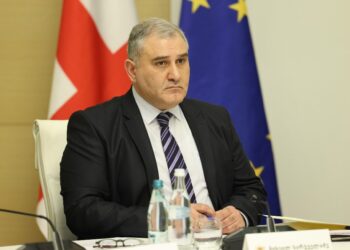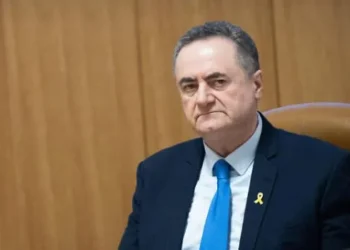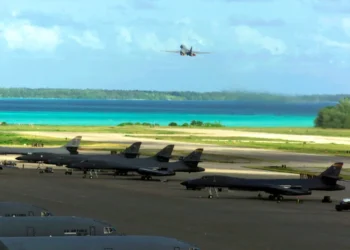Andrey Kurkov is a Russian-language Ukrainian writer, screenwriter, essayist, and publicist who is banned in Russia but is the most published, translated, and read Ukrainian author in the world. His works have been translated into 30 languages. His novel ‘Picnic on Ice’ became one of the first post-Soviet bestsellers in the West. The translation of his novel ‘Grey Bees’ (2018) outsold novels by Stephen King.
Andrey Kurkov is known for his unique style, combining elements of black humor, absurdism, melancholy, and social satire. Kurkov’s books are characterized by unpredictable plots and vivid, memorable characters, who often find themselves in unusual situations.
After the start of the full-scale Russian invasion of Ukraine in February 2022, Andrey Kurkov wrote several notable works reflecting the war and its consequences: ‘Diary of an Invasion’ (2022) and ‘Our Daily War’ (2024), which offer readers reflections and observations on the ongoing war and its impact on Ukrainian society.
The author recently finished the third part of his war diaries.
In Ukraine, any party that demonstrates even an element of pro-Russian narrative will provoke very strong aggression from the radical patriots
Kurkov continues to write articles and essays for international media, providing commentary and analysis on the war and Ukraine. In Georgia, readers can get acquainted with his war diaries and the novel ‘Penguin,’ which have been translated into Georgian (originally ‘Смерть постороннего,’ sometimes translated as ‘Death and the Penguin’) and published under the title ‘პინგვინი’ (Pingvini) by Intelekti Publishing.
Andrey, are you used to living in war conditions? Is it possible to learn to get used to war?
Everyone to whom war comes will either flee or get used to it. The majority of us have gotten used to it, as, while six million have fled, they also regularly come back. There are huge queues at the borders, hundreds of thousands of people every day. Mostly, these are people who live in Poland, Germany; fewer travel to the rest of Europe. But there’s also a lot of movement within the country. In Kharkiv alone, there are 250,000 displaced people from Donbas, Kherson, and the Zaporizhzhia region. Though Kharkiv is bombed every day, it’s just easier to find housing in big cities than in Uzhhorod or Lviv, where there are fewer such opportunities. About 28-30 million continue to live in war-time conditions.
What is your work schedule like? Do you travel abroad often?
I usually spend around ten days a month abroad, although I’ve reduced that now. There are invitations, but I’m refusing more often these days. I was supposed to fly to the USA in May, but I decided not to go.
For political reasons?
Partly, yes. I find it difficult to understand what I can do in Trump’s America right now.
Is the main purpose of your trips to meet readers?
Yes. I have a third book coming out about life during the war. It’s non-fiction. I travel with it to various discussions, lectures, and meetings, including with our refugees.
Do you notice that people’s perception of this war abroad has become dulled?
It’s perfectly normal. People’s psyche can feel empathy for a while, but if nothing changes, they become despondent and their attention switches. Every other conflict that flares up anywhere on the globe further reduces interest in and attention on Ukraine.
Is it possible for you to engage in creative work, to write fiction, during the war?
“Over the past two and a half years, I finished the novel ‘Bannoe Delo’ (The Bathhouse Affair), which I started before the full-scale Russian invasion of Ukraine. It’s the third historical detective novel about Kyiv in 1919, about the second Bolshevik occupation of Kyiv. The first two novels have already been published in various languages. I finished it in November and wrote it on-and-off. Since then, I haven’t written any new fiction. I dream of returning to fiction, but it’s just not working for me right now, so I’m focusing on documentary prose,” Kurkov tells us.
In his novel ‘The Last Love of the President,’ which was published in 2004, Kurkov aptly described the future relationship between Russia and Ukraine, and even predicted the poisoning of presidential candidate Viktor Yushchenko. It is hard to forget the scene in which Putin’s audience with the presidents of other countries takes place in an ice hole with freezing water, so that only a few participants can withstand the harsh test. We ask him if he perhaps underestimated the Russian president in his writing.
No one in Ukraine takes Trump seriously. Trump himself doesn’t remember what he said even yesterday
“No, quite the opposite!” he replies. “Although his machismo at that time manifested itself almost harmlessly, now it has grown into a kind of fascist machismo, into a desire to kill, destroy, and prove to everyone that he doesn’t care about anyone. And the way he humiliated Trump now is the finale. He first humiliated NATO, humiliated the European Union, and now the American president, who stated that he was the best negotiator and could end the war in a day. Now Putin has no one left to humiliate. He has reached the upper limit of geopolitical machismo, and now he will remain there until he dies.”
Do you believe that this war will not end as long as Putin is alive?
Yes, I believe so, and have been saying so from the very beginning.
If you were granted an audience with Trump, would you have any pusuasive arguments to convince him not to stop aid to Ukraine?
Trump is not a man of arguments, and I don’t think that any meeting of mine with him could be even minimally productive. I think that only good psychologists and psychoanalysts can calculate who from the Ukrainian side he needs to meet with and how to prepare that person so that they implant their ideas into Trump’s head and mouth. Because that’s exactly how it happens. An economic advisor implanted tariff war ideas into Trump. If someone from Ukraine can skillfully put reasonable words into Trump’s head that aid to Ukraine should not be stopped, then everything will work out.
Trump claimed that Zelensky was one of the three people who started this war. How was this perceived in Ukraine?
Firstly, no one in Ukraine takes Trump seriously. I saw it as another of his typical phrases, just like the one where he said that Zelensky is a dictator, with 4 percent support. In principle, there’s no point in reacting to these statements, because it seems that Trump himself doesn’t remember what he said even yesterday.
In one of your speeches, you said that this war is not the first military conflict between Ukraine and Russia. Few outside Ukraine know about this. Can you tell us more?
The first major battle was the Battle of Poltava in 1709, when Hetman Mazepa sided with the Swedish King Charles XII against Peter the Great. It was a battle for the Ukrainian dream of independence. And the 1918–1921 period saw the same situation. The idea that there was a civil war throughout the post-imperial Russian space is a myth. On the territory of modern Ukraine, there were two wars simultaneously: the war against Ukrainian independence, declared in August 1918, and the war of the Reds against the Whites. In Russia, there was only a civil war, while in Ukraine, the Polish, German, and three Ukrainian armies participated, two of which fought against each other, Petliura and Skoropadsky. Moscow’s goal has long been to destroy independent Ukraine and turn it into a part of Russia.
The same picture existed in Georgia at that time, too.
Absolutely! And now we’re seeing the continuation. Only this war is being waged on three levels: for territory, against national identity, which allows Ukrainians to defend their territory, and a geopolitical war of an alliance of dictatorships against the democratic West.
In Georgia, the election campaign was built on anti-war rhetoric. Images were used of peaceful and prosperous Georgia and bomb-damaged Ukraine. How did Ukraine react to this? Did it change Ukrainians’ attitude towards Georgia?
Actually, this information didn’t receive much attention. Disappointment in Georgia came earlier, when Georgia refused to return the anti-aircraft systems that Ukraine had transferred to it in 2008.* And after the protest reactions against the illegitimate elections ended without any results, Ukraine stopped discussing Georgia.
How likely is it for a pro-Russian party to come to power in Ukraine, which could similarly play on people’s war fatigue?
First, we don’t have such a party, and it doesn’t even exist potentially, because any party that demonstrates even an element of pro-Russian narrative will provoke very strong aggression from the minority of radical patriots. I don’t think any politician would risk standing with such ideas, not only in an election, but even to the point of posting a video on YouTube. Ukrainians will never admit that they are tired of the war, even if you ask them directly.
So, Ukrainian resistance won’t run out as quickly as Putin hopes?
We have the energy to resist. We definitely have enough for a year, perhaps even for another two years. At the same time, it’s important to understand that we only closed the borders for men, while pensioners, women, and children, those who are tired and can no longer live in war conditions, can leave freely.
However, many have returned from abroad. Some people who returned to Ukraine have died in bombings—in cities like Dnipro, Kherson, and Zaporizhzhia. Still, there is constant movement within the country and across its borders. Many are relocating away from frontline areas or going abroad, although the latter has become less common. Financial assistance across EU countries has decreased, living conditions have worsened, and housing is scarce. People, especially mothers with children, now understand that they won’t receive enough support to settle and wait out the war.
That’s why I firmly believe a pro-Russian party has no chance of coming to power—neither during the war nor afterward. At most, a liberal party could emerge later, one that supports peace or compromise to some extent. But I don’t see a scenario in which Ukraine follows a path similar to what happened in Georgia.
On one hand, Ukraine is a nation of individualists and hetmans—a political culture where the rise of autocrats or dictators is fundamentally at odds with the national character. On the other, we’re seeing a wave of authoritarianism gaining ground across Europe. Could Ukraine face a similar threat?
It’s important to remember that Yanukovych did manage to establish an authoritarian, pro-Russian regime here—but it collapsed after just three years. Something like that could theoretically happen again, but it wouldn’t last. Ukraine has a deep-rooted tradition of resistance to centralized authority—it’s a country where anarchy has historical roots. People here won’t blindly accept a leader as a divinely appointed figure, as is often seen in Russia.
Did the brutal shelling of Sumy during the pre-Easter week affect people? Did fear increase?
After that raid in Sumy, they also bombed a bakery where Easter cakes were being baked! But no one is fleeing Sumy. There’s no exodus from other frontline zones either. People are simply getting angrier and angrier, and the psychological wall between Russia and Ukraine is getting higher and thicker.
What is the danger of trying to negotiate with Putin?
In the West, pragmatic politicians perfectly understand that no agreements with Putin are possible. They don’t talk about it, but are waiting for changes in personnel in the Kremlin, hoping that it will be possible to negotiate with other people who will need not only to change Russia’s image, but also to rebuild the economy, society, and mentality of Russians.
When will that happen?
Once, in China, I was asked when Russia would become democratic, and I replied that it would only be possible after Russia learns to be democratic from a democratic China, since China can become democratic from the top down, on the command of the Communist Party, while Russia cannot; it can only become so under the influence of its “big brother,” which is China.
Have your books been published in China?
Yes. Only one book was not allowed, due to censorship: my diary about the war. But censorship did allow ‘Grey Bees.’
Is it already possible to talk about the divorce of Europe and America?
No, there can be no talk of that. What is happening now, this American mess, will end within three to four months. Everyone in America understands that Europe is needed by America both as a market and as a partner in geopolitical operations. And Europe is not going to break ties with America because of Trump: it will patiently wait for the next president and the next regular or snap elections.
Can you give any useful advice to your readers in Georgia?
It’s difficult for me to give any advice to representatives of any nation. I think that Georgians have always behaved with dignity: fearlessly and courageously. It is only now that we are observing that the young political elite of the country has turned out to be corrupt. This fact does not speak of any national or mental changes, but rather of the fact that Russian corruption and pseudo-pragmatism are winning in Georgia right now.
* It is indeed true that Georgia refused to transfer the “Buk” air defense systems to Ukraine—systems that Ukraine had originally provided to Georgia for use during the 2008 war.
This was reported in January 2023 by the Chargé d’Affaires of Ukraine in Georgia, Andriy Kasyanov. According to him, Ukraine had appealed to Georgia not only regarding the air defense systems but also the “Javelin” anti-tank missile systems that had been supplied to Tbilisi by the United States. The U.S. not only approved the transfer of these weapons but also offered to replace them with newer systems.
However, the Georgian government firmly declined. The Georgian Ministry of Defense stated that the “Buk” systems had been purchased by Georgia in 2007 for a multi-million dollar sum and were not supplied free of charge by Ukraine. Regarding the transfer of weapons to Ukraine, the Georgian government has consistently reiterated its position of not providing military aid, in order to avoid being drawn into the war.














